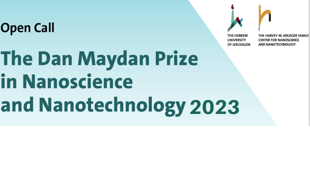Dr. Barak Akabayov
Department of Chemistry, Ben-Gurion University of the Negev
DNA–protein interactions play essential roles in all living cells. Understanding how features embedded in the DNA sequence affect specific interactions with proteins is both challenging and crucial. Extracting DNA features may contribute to finding the means to regulate metabolic pathways in living cells involving DNA–protein interactions. DNA replication is an example of a metabolic pathway where specific DNA–protein interactions occur. DNA primase is a crucial enzyme in the DNA replication machinery that serves as a model system for specific DNA–protein interactions. We have determined primase-DNA recognition sites specificities using combined protein binding microarray experiments and a machine learning workflow. We found that the effective binding to its specific DNA recognition sequences triggers primase catalytic activity necessary for a faithful DNA replication.
- * DNA sequence context controls the binding and processivity of the T7 DNA primase. A. Afek, S. Ilic, J. Horton, D. Lukatsky, R. Gordan, B. Akabayov (2018). iScience, 2(141-147)..
- * Inferring primase-DNA specific recognition by using a data driven approach. A. Soffer, S.A. Eisdorfer, M. Ifrach, S. Ilic, A. Afek, H. Schussheim, D. Vilenchik, B. Akabayov (2021). Nucleic Acid Research, 49, 20 (11447–11458).


